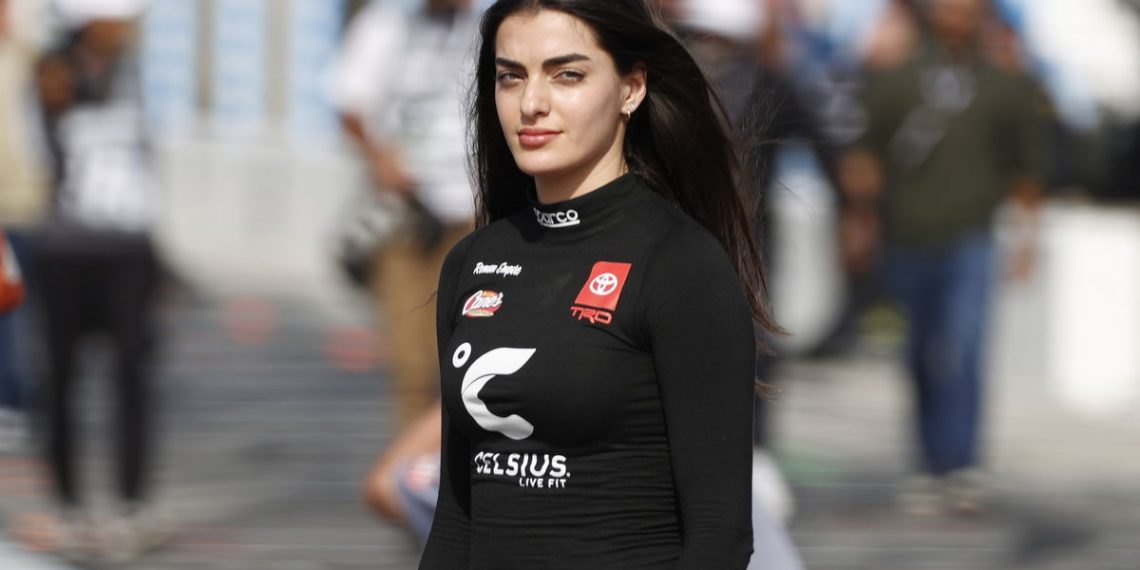Toni Breidinger Exposes Social Media Scammers Targeting Fans!
In a digital age plagued by deceit and fraud, racing sensation Toni Breidinger finds herself entangled in a web of online scams, cautioning her loyal followers against falling victim to these elaborate traps. Despite her continuous efforts to warn fans, the threat of fake accounts, deceptive fan clubs, and misleading VIP offers looms large, with new schemes emerging regularly to prey on unsuspecting supporters.
With a massive social media following, including 2.5 million Instagram followers, 180K on Facebook, and 45K on X, Breidinger has become a prime target for impersonators looking to exploit her popularity for personal gain. The NASCAR and ARCA driver has raised the alarm once again, urging fans to stay vigilant in the face of increasingly sophisticated online fraud.
In a recent tweet, Breidinger revealed the staggering extent of the issue, stating, “There are ‘100000000s’ of fake accounts impersonating Toni Breidinger.” She emphatically declared, “I will never ask you for money or sell fan club/VIP cards or anything like that. There are 100000000 fake accounts of me. My management won’t either. So be smart out there.”
As the first Arab-American female driver in NASCAR and a rising star in the ARCA Menards Series, Breidinger’s rapid ascent to fame has made her a lucrative target for scammers seeking to capitalize on her dedicated fan base. Her warning comes as a stark reminder that fans must exercise caution and verify accounts before engaging to avoid falling prey to these malicious schemes.
This is not the first time Breidinger has sounded the alarm. Two years ago, she issued a similar caution, debunking the existence of any private accounts and urging fans to be wary of impostors posing as her on social media platforms. The prevalence of such scams underscores the pervasive nature of online deception and the need for heightened awareness among fans.
Breidinger’s message is clear: any offers of exclusive content or VIP experiences purportedly from her are fraudulent. The issue extends beyond the racing community, with public figures like the Dallas Cowboys Cheerleaders and Cincinnati Bengals quarterback Joe Burrow also falling victim to similar scams. These instances serve as a reminder of the importance of vigilance and skepticism in navigating the treacherous waters of digital interactions.
As the specter of online fraud continues to loom large, Breidinger’s unwavering advocacy for her fans’ safety stands as a beacon of hope in an increasingly perilous online landscape. Fans must heed her advice and remain cautious to protect themselves from falling prey to these insidious scams that threaten to undermine the trust between athletes and their supporters.










